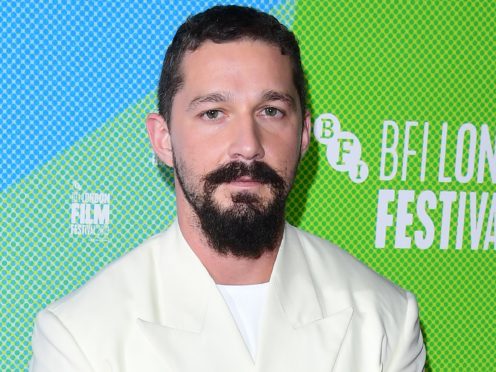Shia LaBeouf has said he thought his acting career was over and he would join the Peace Corps when he wrote a film abut his life while in a mental institution.
The Transformers actor mined his own history to write the autobiographical Honey Boy, about a child star who has a troubled relationship with his father.
Otis Lort is played by British actor Noah Jupe as a child and by Manchester By The Sea star Lucas Hedges as a young adult, while LaBeouf plays his own father.
He wrote the screenplay while in court-ordered rehab and told The Hollywood Reporter’s actor roundtable: “My back was against the wall. I was nuclear at this point.
“It felt like survival, like there was no other way to go. I didn’t have a lot of people talking to me. I was in a mental institution. And I also had a doctor who was pushing me to explore these dirty parts and write them down.”
He said being in the institution helped him discover empathy for his father, who he described as “always the biggest villain in my life”.
He added: “And if you can empathise with the biggest villain in your life and scrape some of these shadows, it makes you lighter and freer.
“I don’t think I was leading with love, and my life has changed. And when you lead with lightness and love, you can get to the heavy easier, you know? It’s much easier, much more accessible.
“Anger and the rough shit is very easy – it’s the other stuff that feels quite difficult. Getting an honest laugh is very hard, very hard. I think some of the hardest stuff is the lightness.”
He continued: “I hadn’t talked to my dad for seven years before I started this, so I didn’t really know my dad too well, didn’t have a relationship with him. (In acting, I grew up) transposing my pain from my father and it would work in front of a camera for a long time.
"My dad signed the paper under the auspices that he was going to be played by Braveheart." Even though Mel Gibson never responded to Shia LaBeouf about playing his father in #HoneyBoy, he used the name to get his dad to sign off on the role https://t.co/yOl7K3XK1o #THRRoundtable pic.twitter.com/T6eA2OhJAE
— Hollywood Reporter (@THR) December 4, 2019
“I didn’t have much more technique than that and then was scared to clean it up because I thought, ‘Well, I don’t want to lose the only thing I’ve got’, which was this pain that felt very real for me. I had a strange way of viewing my pain with my father and I used it at work.”
LaBeouf also said that he never expected to play his own father and even told him that the part would be played by Mel Gibson.
He said: “I didn’t think I’d be able to play him, because I was not in a spot where people were like, ‘Hey, let’s put some money on this kid’s back and have him carry a movie.’
“I thought my acting career was done. I was going to join the Peace Corps. So I sent it to Mel Gibson and luckily he never emailed me back and it gave me an opportunity.
“I thought he was the guy to play my dad, and my dad was thinking along the same lines.
“And it’s one thing to want to play your dad, it’s another thing to go stand in front of your father after seven years of not talking and go, ‘Hey, man, I’m going to play you’, when there’s contention already.
“So I lied to him and told him, ‘Mel Gibson’s going to play you. Sign right here’.
“So my dad signed the paper under the auspices that he was going to be played by Braveheart.”
